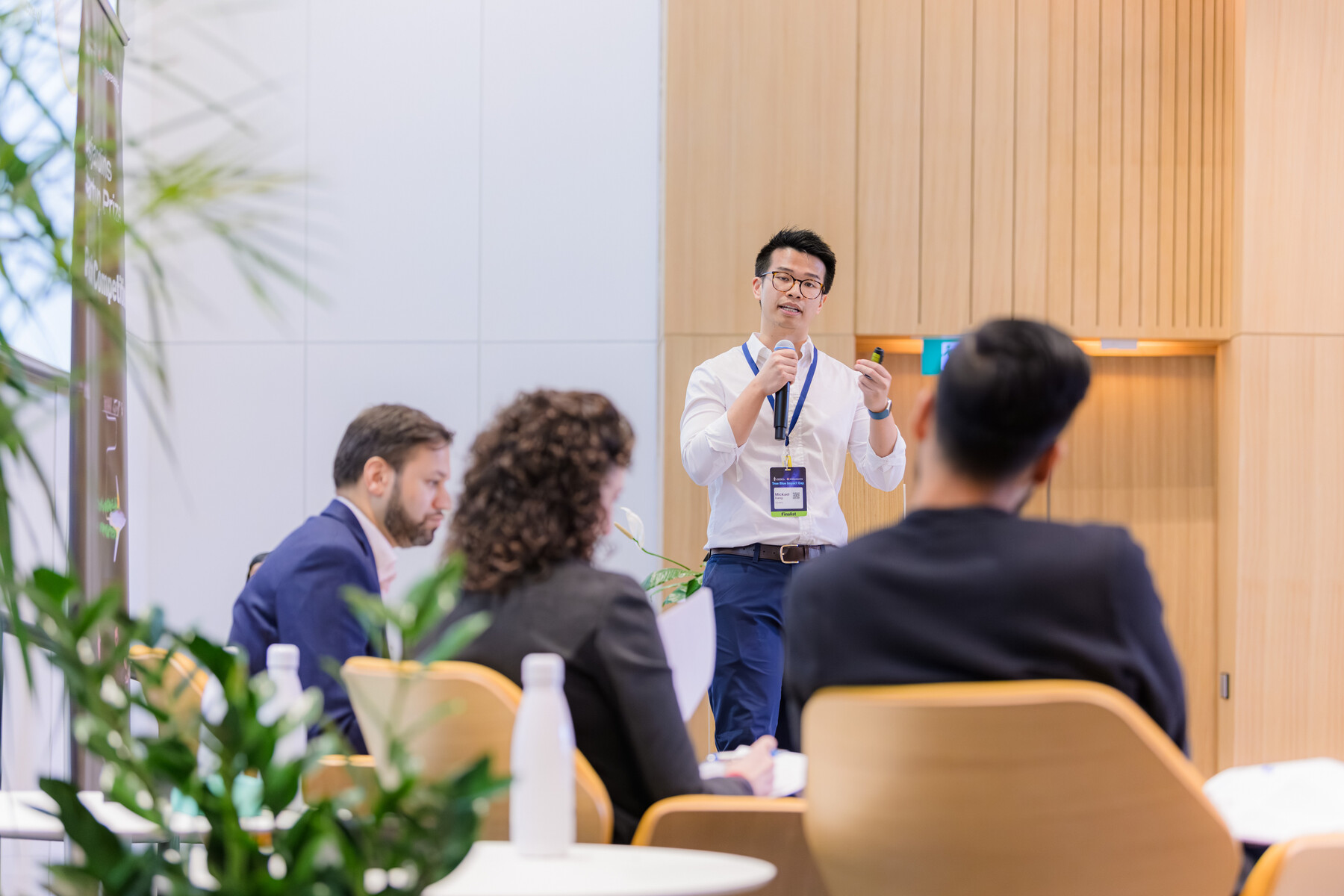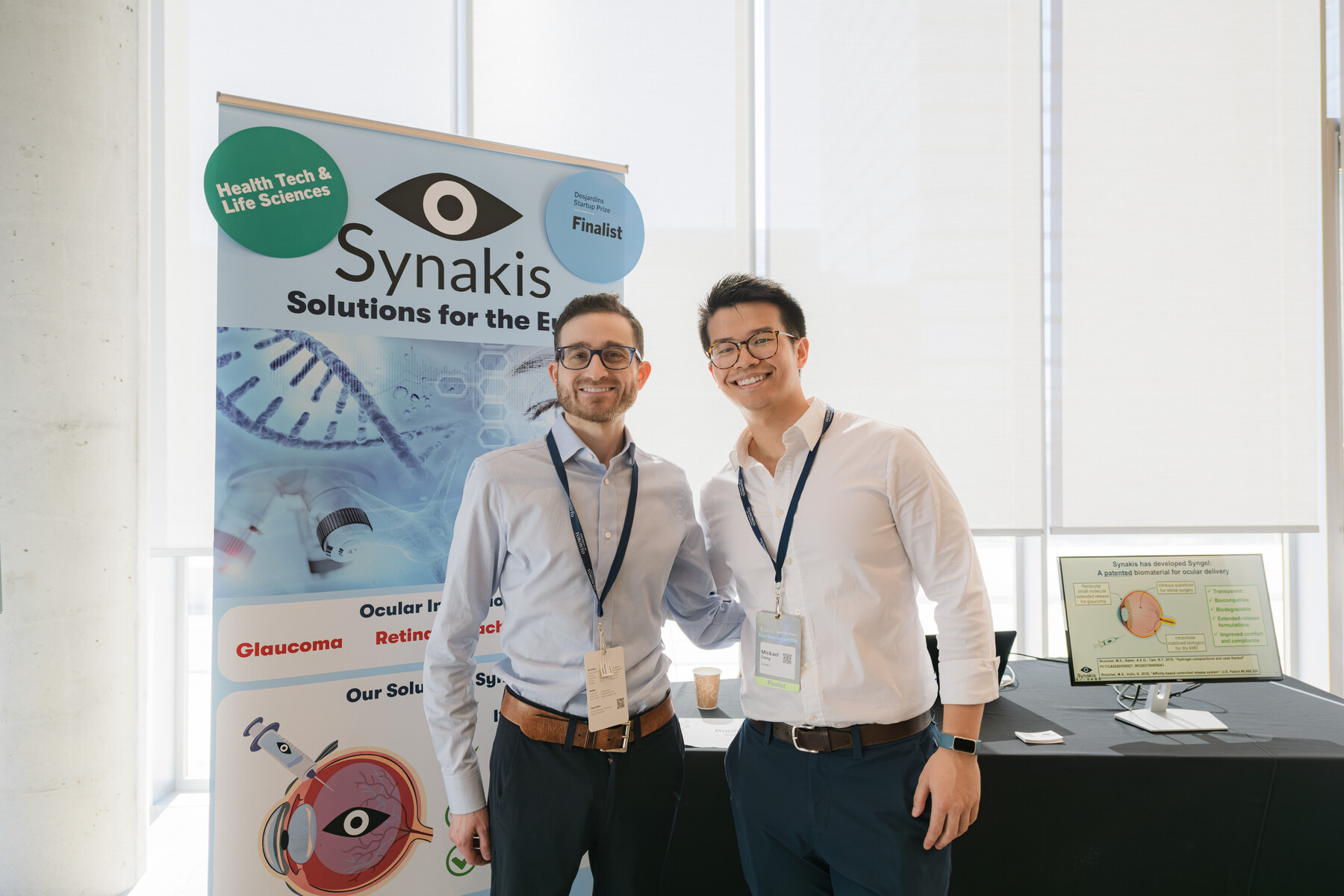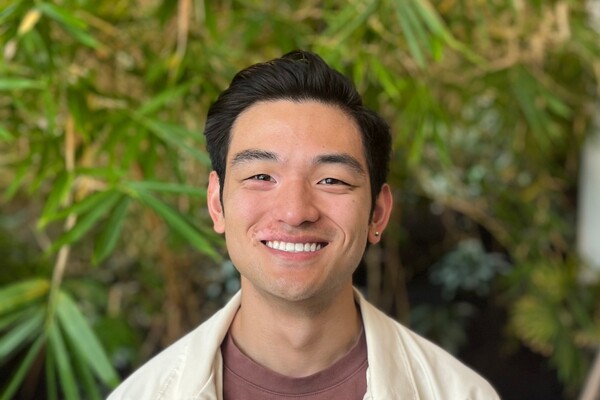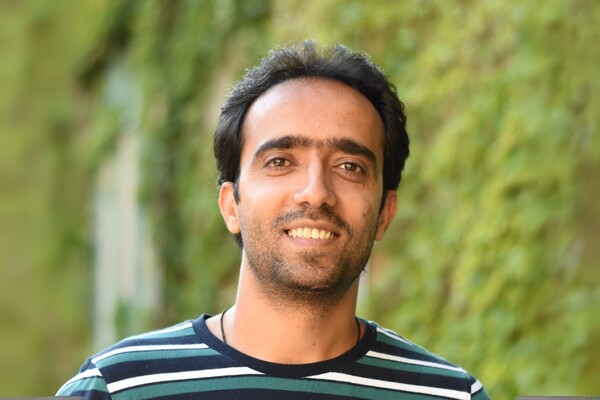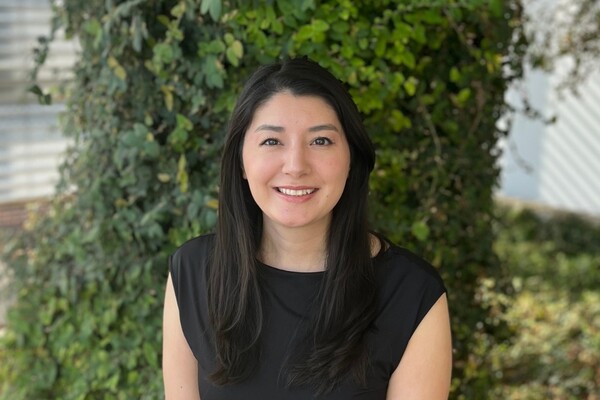Main Second Level Navigation
Apr 22, 2024
Donnelly Centre Startup Wins First Place in Desjardins Pitch Competition
Awards, Bioengineering, Trainees
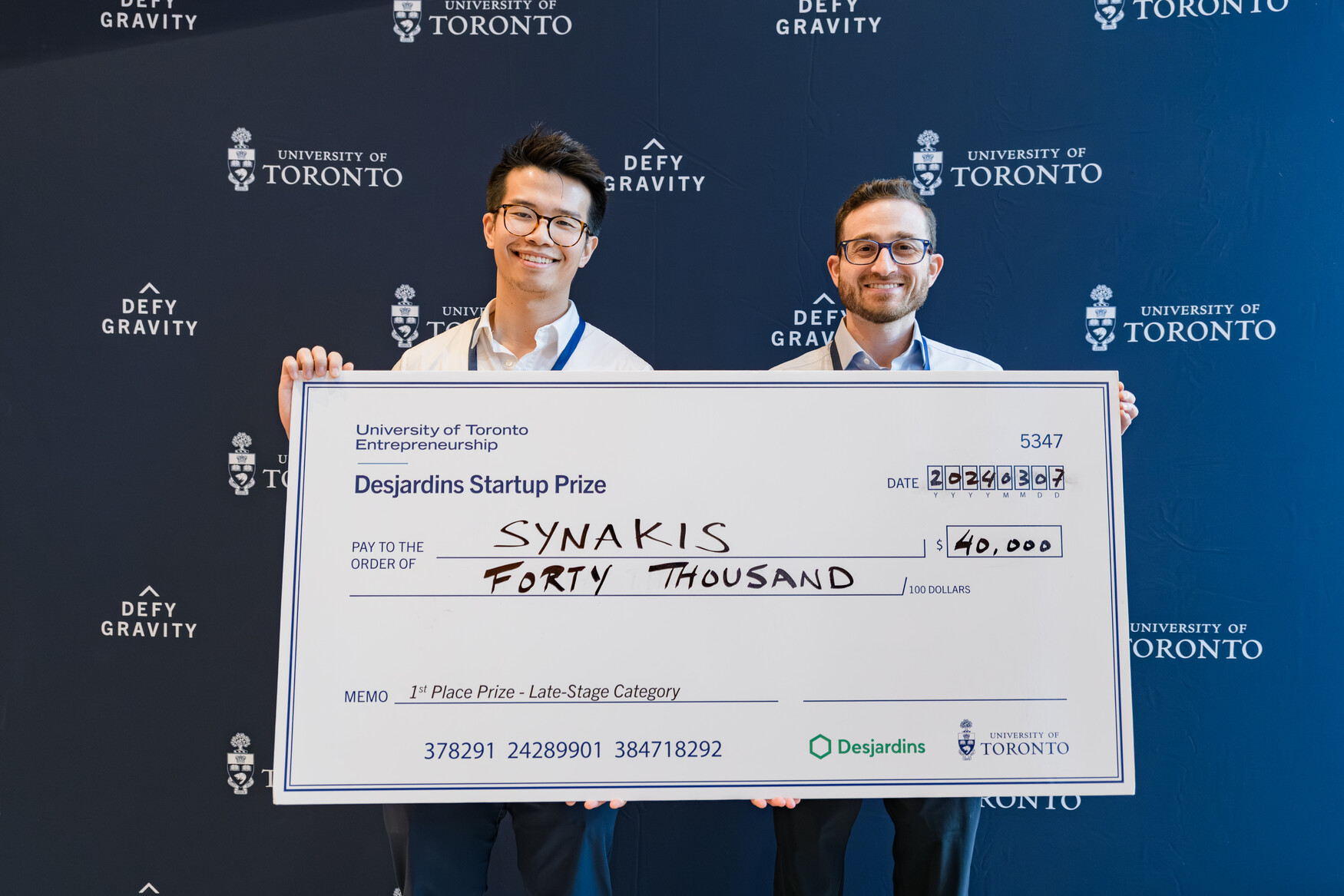
Alyssa K. Faoro
PhD Student Mickael Dang and Postdoctoral Fellow Adam Forman holding first-place cheque awarded to Synakis at the 2024 Desjardins Startup Prize Pitch Competition

